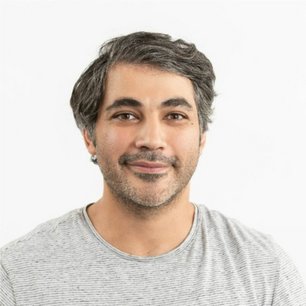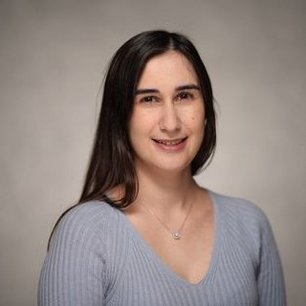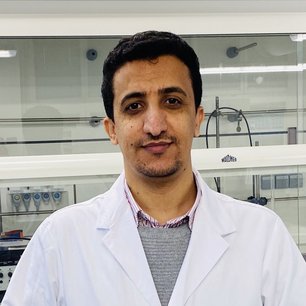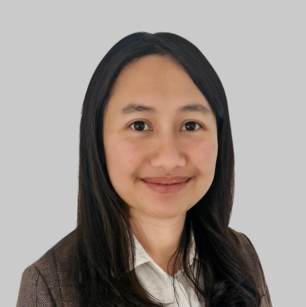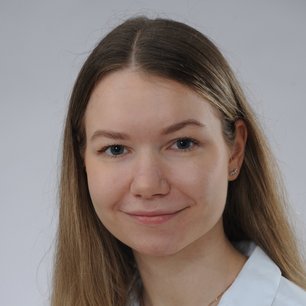Personalized Immunotherapies Division
Prof. Dr. Özlem Türeci
Personalized treatment approaches using patient-derived immune cells
OUR RESEARCH
Why it matters
Our department focuses on advancing cancer immunotherapy by unraveling the mechanisms behind cutting-edge therapeutic strategies such as mRNA therapeutics, antibody-drug conjugates (ADCs), and monoclonal antibodies. We aim to address the challenges of therapy resistance and improve patient outcomes by exploring innovative approaches. By bridging fundamental research and therapeutic innovation, we strive to pave the way for more effective cancer treatments.
TÜRECI LAB
Lab focus
Our department is dedicated to addressing critical challenges in cancer immunotherapy, focusing on three key research areas:
Targeted mRNA Delivery: Investigating the potential of targeted mRNA delivery to enhance T-cell functionality by enforcing the expression of specific transcription factors. This research aims to expand progenitor exhausted T cells, thereby improving patient response to immune checkpoint inhibitors.
Antibody-Drug Conjugates (ADCs): Exploring the interaction between ADCs and the host immune system to understand their effects on the tumor microenvironment. We examine ADC efficacy in "cold" and "hot" tumors and seek optimal strategies to combine ADCs with immunotherapies like checkpoint blockade and mRNA vaccines.
Monoclonal Antibodies Targeting Claudin 18.2: Unraveling the mechanisms and rationale behind targeting Claudin 18.2, a promising therapeutic approach for specific cancers.
Our department employs state-of-the-art techniques and platforms, including:
RNA-LNP Engineering: Developing precise delivery systems to modulate gene expression in immune cells in collaboration with the mRNA Cancer Immunotherapy Division at HI-TRON.
Immune Profiling: Using advanced flow cytometry, single-cell RNA sequencing, and imaging techniques to analyze immune-tumor interactions.
ADC Characterization: Leveraging preclinical models and high-resolution imaging to assess ADC efficacy and mechanism of action.
Translational Research: Partnering with clinical teams to validate laboratory findings and design trials that integrate novel therapies.
Our ultimate goal is to improve cancer treatment outcomes by overcoming resistance to immunotherapy and expanding its effectiveness across diverse patient populations. By deepening our understanding of therapeutic mechanisms, we aim to make immunotherapies more precise, accessible, and impactful.
Head of Division Personalized Immunotherapies
Prof. Dr. Özlem Türeci
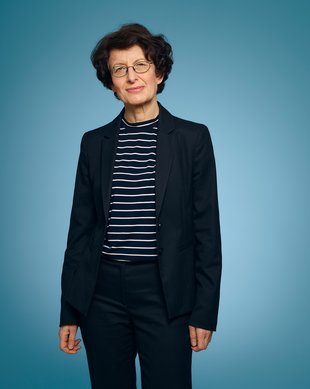 © BioNTech SE 2023
© BioNTech SE 2023
[since 2021] W3 Professor for Personalised Immunotherapy, Helmholtz Institute for Translational Oncology (HI‐TRON), Mainz, Germany, and Johannes Gutenberg University Mainz, Germany
[since 2018] Chief Medical Officer (CMO), BioNTech SE, Mainz, Germany
[2009 – 2019] Chairperson, Scientific Advisory Board, BioNTech SE, Mainz, Germany
[2008] Co‐Founder, BioNTech SE, Mainz, Germany
[2008 – 2016] Chief Executive Officer (CEO), Ganymed Pharmaceuticals AG (now a subsidiary of Astellas Pharma Inc.), Mainz, Germany
[2002 – 2021] Independent Lecturer in Cancer Immunotherapy, University Medical Center, Johannes Gutenberg University Mainz, Germany
[2002] Habilitation in Molecular Medicine, Johannes Gutenberg University Mainz, Germany
[2001 – 2008] Chief Scientific Officer (CSO), Ganymed Pharmaceuticals, Mainz, Germany
[2001] Co‐Founder, Ganymed Pharmaceuticals AG, Mainz, Germany
[1992] PhD, Faculty of Medicine, Saarland University, Homburg (Saar), Germany
[1986 – 1992] Degree in Medicine, Saarland University, Homburg (Saar), Germany
[since 2019] Member, Executive Board, Association for Cancer Immunotherapy e. V. (CIMT), Mainz, Germany Member, American Society of Clinical Oncology (ASCO), USA
[since 2011] Chairperson and Co‐Initiator, Cluster for Individualized Immune Intervention (Ci3) in the Rhein‐Main Region (Rhineland‐Palatinate, Hessen, Baden‐Württemberg), German Federal Ministry of Education and Research (BMBF)
[2010] Founding Member, Translational Oncology (TRON), University Medical Center, Johannes Gutenberg University Mainz, Germany
[since 2013] Member, American Association for Cancer Research (AACR), USA
[since 2013] Member, Deutsche Gesellschaft für Hämatologie und Onkologie (DGHO)
[since 2004] Member, German Society for Immunology (DGfI)
[2023] Member, Orden Pour le mérite für Wissenschaften und Künste, Beauftragte der Bundesregierung für Kultur und Medien
[2023] Jung Prize for Medicine
[2022] Honorary Ring, University Medical Center of the Johannes Gutenberg University Mainz, Germany
[2022] Werner von Siemens Ring, Werner von Siemens Ring Foundation, Germany
[2022] Paul Ehrlich and Ludwig Darmstaedter Prize, Paul Ehrlich Foundation, Frankfurt am Main, GermanyJeantet‐Collen Prize for Translational Medicine, Louis‐Jeantet Foundation, Geneva, Switzerland (together with Uğur Şahin and Katalin Karikó)
[2021] Deutscher Zukunftspreis – the German Federal President's Award for Technology and Innovation (together with Uğur Şahin, Christoph Huber and Katalin Karikó)
[2021] German Immunology Award, German Society for Immunology (DGfI)
[2021] Inducted into the Hall of Fame for German Research, manager magazin, Hamburg, Germany
[2021] Meyenburg Prize, Meyenburg Foundation, Heidelberg, Germany
[2021] European Manager of the Year, European Business Press (EBP), Ljubljana, Slovenia
[2021] Honorary Doctorate, Faculty of Medicine, University of Cologne, Germany
[2021] Princess of Asturias Award for Technical & Scientific Research, Princess of Asturias Foundation, Oviedo, Spain
[2021] Academy Prize of Rhineland‐Palatinate, German Academy of Sciences and Literature, Mainz, Germany
[2021] Great Cross of Merit (with star) of the Order of Merit of the Federal Republic of Germany
[2021] Axel Springer Award, Axel Springer SE, Berlin, Germany
[since 2021] Member of the German Academy of Sciences and Literature
[since 2021] Member, German National Academy of Sciences Leopoldina
[since 2021] Member, European Molecular Biology Organization (EMBO), Heidelberg, Germany
[2020] Person of the Year, Financial Times, London, UK
[2020] German Sustainability Award (DNP), German Sustainability Award Foundation
[2005] Georges‐Köhler Prize, German Society for Immunology (DGfI)
[1997] Calogero‐Pagliarello Research Award, Calogero‐Pagliarello Foundation, Homburg, Germany
[1995] Vincenz‐Czerny Prize, German Society of Hematology and Medical Oncology (DGHO)
Team
Dr. Cansu Eris
Postdoc - Immunologist
Ramzi Saeed
Postdoc - LNP chemist
Helda Celya Kasiaheng
Technician
Deniz Emre Ekinci
PhD Student
Hannah Stockhausen
PhD Student
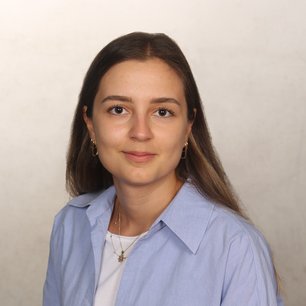 privat
privat
Asude Adiyaman
Intern
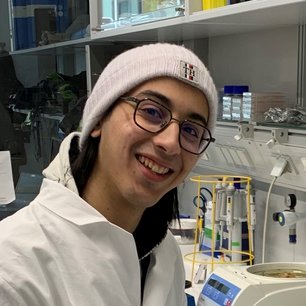 privat
privat
Majd Hadji
Intern

Anna-Sophie Stritter
Intern
Selected publications
- Stadler CR, Ellinghaus U, Fischer L, Bähr-Mahmud H, Rao M, Lindemann C, Chaturvedi A, Scharf C, Biermann I, Hebich B, Malz A, Beresin G, Falck G, Häcker A, Houben A, Erdeljan M, Wolf K, Kullmann M, Chang P, Türeci Ö, Şahin U. Preclinical efficacy and pharmacokinetics of an RNA-encoded T cell-engaging bispecific antibody targeting human claudin 6.Scince Translational Medicine. 2024; Vol 16, Issue 748
- Lordick F, Thuss-Patience P, Bitzer M, Maurus D, Sahin U, Türeci Ö. Immunological effects and activity of multiple doses of zolbetuximab in combination with zoledronic acid and interleukin-2 in a phase 1 study in patients with advanced gastric and gastroesophageal junction cancer. Journal of Cancer Research and Clinical Oncology. 2023; Volume 149, 5937–5950
- Sahin U, Oehm P, Derhovanessian E, Jabulowsky RA, Vormehr M, Gold M, Maurus D, Schwarck-Kokarakis D, Kuhn AN, Omokoko T, Kranz LM, Diken M, Kreiter S, Haas H, Attig S, Rae R, Cuk K, Kemmer-Brück A, Breitkreuz A, Tolliver C, Caspar J, Quinkhardt J, Hebich L, Stein M, Hohberger A, Vogler I, Liebig I, Renken S, Sikorski J, Leierer M, Müller V, Mitzel-Rink H, Miederer M, Huber C, Grabbe S, Utikal J, Pinter A, Kaufmann R, Hassel JC, Loquai C, Türeci Ö. An RNA vaccine drives immunity in checkpoint-inhibitor-treated melanoma. Nature. 2020; 585, 107–112
Lab News
02/2026: A new member joins the Türeci lab: Deniz Emre Ekinci
01/2026: A new member joins the Türeci lab: Hannah Stockhausen
06/2025: A new member joins the Türeci lab: Cansu Eris
04/2025: A new member joins the Türeci lab: Ramzi Saeed
01/2025: A new member joins the Türeci lab: Yen-Ju Lin
11/2024: A new member joins the Türeci lab: Helda Celya Kasiaheng
01/2024: A new members joins the Türeci lab: Ibrahim Murathan Sektioglu
Gallery
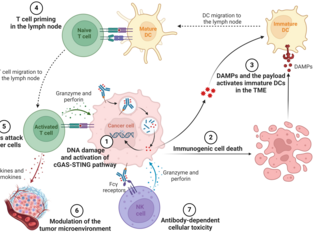 Created with biorender.com
Created with biorender.com
 Created with biorender.com
Created with biorender.com
 Created with biorender.com
Created with biorender.com
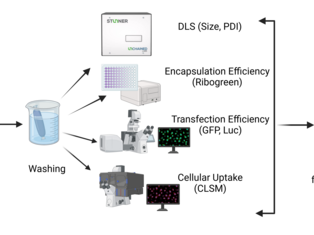 Created with biorender.com
Created with biorender.com

